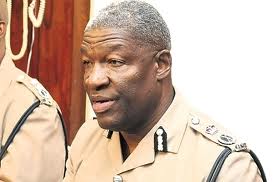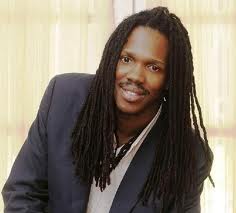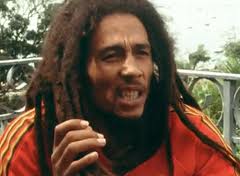By Vernon Davidson—
IT’S the extremities in the dancehall music being produced by some artistes that get to Police Commissioner Owen Ellington.
The lyrics, he insists, are being used to threaten witnesses, discourage co-operation with the police, and enforce a code of silence in communities held hostage by gangsters.
  ELLINGTON… to bring crime to an acceptable level will take more resources than those currently available to him ELLINGTON… to bring crime to an acceptable level will take more resources than those currently available to him |
Just as bad, they are influencing behaviour among children who, he said, will grow up believing that violence is normal.
“Gangs shape the environment for the continuous commission of criminal activity from which they make money,” Ellington argued at the Jamaica Observer Monday Exchange last week.
“One of the things that they do in shaping that environment is that they enforce what we refer to as a code of silence, where citizens see crime and are afraid to report them, where citizens are unwilling to co-operate with law enforcement, and where citizens may actually turn against others who co-operate with law enforcement,” the police commissioner added.
“They do this in a number of ways — overt, physically on the streets, staring down people, issuing verbal threats, etc, searching the cellphones of citizens to see if they have police numbers in them or 119, the numbers of well-known policemen and they victimise citizens for that, they have even killed people who have the numbers of policemen in their phones,” Ellington said.
He argued, though, that the method most utilised by gangs to enforce this code of silence is the lyrics in some of the music.
“For example, they advocate killing of informers, murdering of witnesses, murdering of policemen and doing certain things to silence individuals in communities,” the commissioner said, before giving graphic examples of some of the lyrics that have pushed him to support tough measures proposed in the Criminal Justice (Suppression of Criminal Organisations) Act, more popularly known as the Ani-gang legislation.
“There are songs, for example, which suggest that the guy has 119 in his phone on speed dial, so fire a bullet in him head quick before him can redial,” Ellington related.
“Now, that is clearly a call for individuals to kill somebody who may call the police,” he argued.
“There are lyrics where people brag about nuff time dem mek police car reverse, nuff likkle fool dem mek go lay down inna hearse, when dem a murder people dem nuh leave witness, and sometimes if dem an a guy have something dem kill him, cut off him head and parade it inna road so people think dem deh pon coke, but dem nuh deh pon nutten, is jus wicked dem wicked and dem nuh fraid fi push a machete down a old woman throat.”
Section 15 (1) of the bill, now being debated in the Parliament, proposes that: “A person may not use a common name or identifying sign, symbol, tattoo or other physical marking, colour or style of dress or graffiti or produce, record or perform songs to promote or facilitate the criminal activity of a criminal organisation.”
But the provision has angered supporters of dancehall music and civil society groups, who argue that it will stifle free expression and criminalise young people who are engaging in normal adolescent behaviour.
Some proponents of dancehall music, including State Minister for tourism and entertainment, Damion Crawford, have even raised the argument that if reggae superstar Bob Marley was still alive he could be punished under the proposed law for singing ‘I shot the sherrif’ and for the line in Talking Blues which states ‘I feel like bombing a church’.
Commissioner Ellington, however, does not share that view. “Bob didn’t, in any of his songs, tell people to go out and commit murder,” Ellington argued.
The Sunday Observer looked up the lyrics of a number of the types of dancehall recordings to which Ellington referred and found the following by some of the more prominent artists:
* Big gun! small gun! short gun! tall gun!
Any gun! gimmie gun! fassyhole dead!
Coppa shot! hollow clap! set yuh face full a dat
Memba weh mi seh before fassyhole dead!
Any bwoy! any man! any fool! any don!
Mi nuh fraid a nobody, fassyhole dead!
Buss it up anytime talk him out cross di line
45 buss di 9, fassyhole dead yeah!
* Mi murda people inna broad daylite
Six pants mi walk wid cah di AK lite
A wa do sum bwoy, weh win a play play fight
Wi a hot head weh strap up like a airplane flite
* Dem bwoi deh jus start bad
You no how long we b@#**@# bad
From skool days, wi a shot man
Middle day, ask di man weh sell b@#**@# crab
Tings weh mi do
People tell mi mi mus guh a hell
* Crucifixion fi all maama man
Execute, all Lesbian, crucifixion all lesbian
nuh badda come cross di border line
nuh badda come
* Witness disappear a mi preference
Yuh caan convict without no evidence
No bwoy nuh try fi report the bad bwoy
No written statement, no arraignment
Yow, criminal measure need criminal solution
Buy out di judge, buy out di prosecution
Mi own di jury before dem introduce one
Mi money reach faster dan Western Union
Dis a Jamaica, nah lock up like Akon
Dis is a OJ Simpson situation
Why yu waan fi play mi like station
bait mi like a bacon wid false information
An if yu lock mi up again mi haffi stay strong
Rise like inflation through any situation
Hero fi di gangster dem, menace to di nation
Last Monday, reflecting on the violence in the lyrics, Ellington asked: “Is that the standard that we want to set for ourselves as a society? Why not try to produce something that has something right about it all the time? Rather than saying, ‘bwoy, I will go as far down the valley as I can go unless somebody can find a law and tell me that something is wrong with what I’m doing’.”
He said that if the country was serious about dealing with the sub-culture, which promotes violence, intolerance, hatred, mistrust, non-acceptance of traditional values and non-adherence to law and order, we’re going to have to look at a number of things.
“We have to look at education, the family structure, the music, we have to look at what is out there in public media, we have to look at just about everything,” Ellington said.
“So we just said, let’s take a look at the music, as we know that music is one of the medium used by the gangs; they’ve co-opted many of our very, very talented artistes to do these songs that promote violence, advocate violence against people who support law and order, and whilst it is not played on radio all the time, it is played in taxis, minibuses, it is played in the communities, these are communities where dances are kept every night, every weekend, where police struggle to keep the sound systems turned down or turned off, where children are exposed to this kind of lyrical penetration day after day, night after night, and ultimately they are going to accept this as a part of the normal process of socialisation, and so you can’t blame them if they grow up mistrusting the police, not trusting the Government, not believing in the rule of law, not subscribing to the traditional values of society and being willing to kill those who speak out against wrongdoing,” he said.
“So, it may not be that you respond to it in the anti-Gang legislation, or some other legislation, but what we are saying in law enforcement is, this is something that has to be responded to by the State,” he added.













